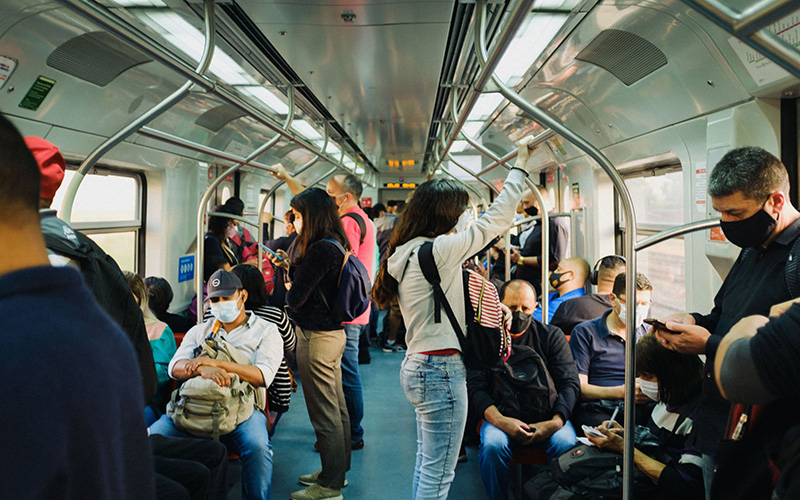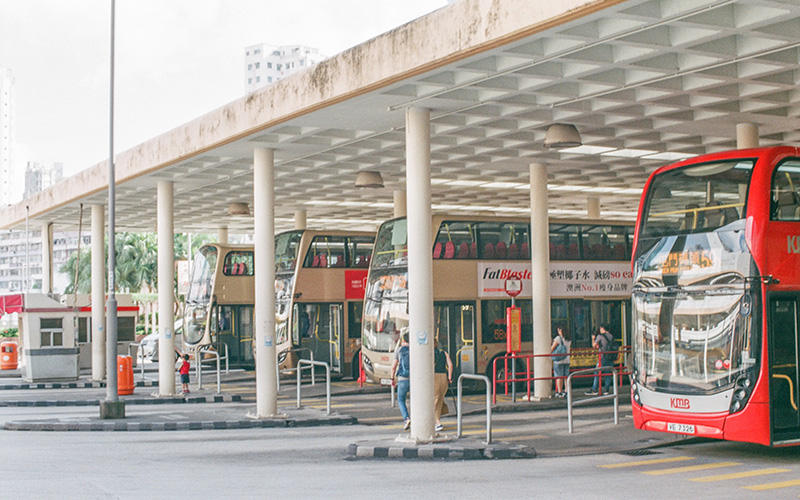What to do if you get stuck on public transport
Getting stuck somewhere far from home can be anxiety-inducing for even the bravest traveller. It’s a scary thought when you’re on a train halfway round the world and it’s mysteriously delayed or cancelled for hours with little or no explanation. It doesn’t happen very often, but public transport can be unpredictable at the best of times and issues can arise. If an issue does come up, just stay calm and you can get through it easily.

My experiences with delayed and cancelled trains
I was on a train the other week and we had stopped for a while at a station about two hours away from the one I wanted to get off at. I didn’t think much of it at first – the train must have pulled in early and was just waiting for the correct departure time before setting off again. It wasn’t until about ten minutes later when the train conductor announced on the speaker that they were waiting for a small delay to clear up a little bit down the line. No big deal, I thought, so I put my earphones in and sat tight.
Around twenty minutes later we had another announcement saying the delay was a bit more serious than they initially thought, and that they weren’t sure when we would be able to leave the station. They reassured us that they hoped it wouldn’t be for two much longer – I was a bit frustrated as I had had a long day and just wanted to get back home, but there wasn’t much I could do.
We had been waiting for around an hour at this point and another train had pulled in to the station behind us. However, since there was nowhere they could go, the passengers were told to move into our train as they were going to the same place we were. This is when I started to get a little anxious, as my carriage was filling up and nobody really knew what was going on at this point.
Fast forward about two hours and the conductor was urging anyone who could go back to travel back home and come back tomorrow morning. They said they were trying to either sort out an alternative train to pick us up, have coaches come or put us in a hotel for the night. Not ideal – I was stuck in a city I had never been to before and didn’t even know if I was coming home tonight.
About six hours later, we were finally on the move again. Another train had come to pick us up, and we were taking a diverted route home. Originally we were supposed to get back at 9pm, we eventually reached our destination at 2am.

What to do if you get stranded
The first, and most important bit of advice I can give you is to remain calm. If you can remain calm, you’ll be able to keep a clear head and be more rational in your decision-making. Listen out for announcements from staff members – either if they are announcing them over a tannoy or moving down the carriage. Public transport speakers aren’t always known for having the best sound quality, so listen closely, and if you’re still not sure then don’t be afraid to ask someone what was said. Honestly, there isn’t always much else you can do in this situation. In the UK, most trainlines will offer you compensation on your ticket if the delay is longer than thirty minutes.
Applying the knowledge, awareness and response (KAR) framework
Knowledge
Whilst you can’t predict when your train is going to be delayed or cancelled, there are some precautions you can take before your journey to help you out as much as you can, should your journey be disrupted. First of all, check what type of train ticket you are purchasing: advance singles are often the cheapest and most appealing ticket due to their price, however they are only valid for that particular journey and in some cases cannot be refunded if your train is delayed. Anytime return tickets give you the most flexibility for travel, allowing you to hop on any train owned by a particular trainline for a certain amount of time. This can be helpful if your train is cancelled, as you can hop on another train straight away without having to wait for instructions from the train staff.
If you’re stuck in a certain destination with no departure timeframe, research nearby hotels in case you need to stay the night in an emergency. Last-minute hotels can be pricey, especially if you are booking late at night. Use a good comparison website to find the best deals if money is an issue.
Awareness
As mentioned previously in the blog, listen out for important announcements from train staff on the tannoy, as they will keep you informed to the best of their abilities. It is important to be aware of your stress levels, and how you are feeling during this ordeal as well. If you can feel yourself getting anxious or unsettled at any point, take a deep breath and calm down. If you’re on a busy train, you might have the option to move to a quieter or less-busy carriage. If this isn’t an option, you can always sit in the loo for a few minutes of uninterrupted peace of quiet.
Response
In situations like this, you can only do so much. The correct response is following the train staff’s instructions and not causing an inconvenience to staff or other passengers through bad manners – they won’t want to be in this situation just as much as you won’t. It can be confusing if you have to find an alternate train at an unfamiliar station, so use your awareness to read the signs and correctly find your new train.
Final words
Public transport is often the cheapest and most convenient option for travellers all around the world. However, it does present its own set of risks and at times is not always the most reliable option. While it is unlikely, delays and disruptions can happen so hopefully this guide has helped alleviate any concerns. If you would like more advice on dealing with the stresses of public transport disruption, check out our blog post on how you can apply the KAR framework to improving your mental health.
Written by Joe Corfield.




